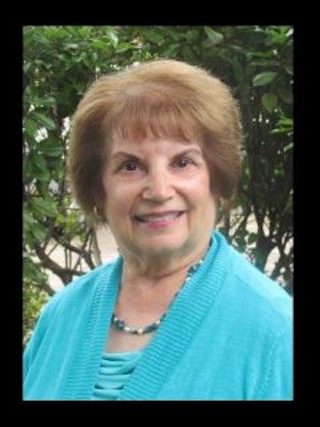-
An Example of “She Did What She Could”
 Written byMarbella Parra, volunteer for the Iron Rose Sister Ministries in Honduras
Written byMarbella Parra, volunteer for the Iron Rose Sister Ministries in Honduras As we read the Bible, we find many exemplary stories of women who, with what they had in their hands, did important things that influenced the lives of others and left a mark on eternity. In the New Testament, we find the story of a woman who anointed Jesus with a very expensive perfume, and when criticized by those around her for "wasting the perfume," Jesus defended her by saying, "She did what she could" (Mk 14:8 NIV). He recognized her sincere dedication and her willingness to give the best she had, regardless of the criticism of others. No more was demanded of her than what she could offer, but her act of love and devotion was recorded as an example for all. These words resonate as a reminder that God is not calling us to do the impossible but to be faithful with what we have, whether it be our time, talents, resources, or efforts. It's about living with an attitude of surrender and trusting that God uses every little act done with love for His glory.
As women of God, we have been challenged to put wisdom into practice in our daily lives, as Matthew 7:24 says: "Therefore everyone who hears these words of mine and puts them into practice is like a wise man who built his house on the rock.". Wisdom is not simply accumulated knowledge, but action based on divine truth.
The woman who anointed Jesus did not wait for perfect timing or approval from others. She simply acted with love and gratitude. In the same way, each of us has daily opportunities to do what we can with what God has placed in our hands. Perhaps it is a word of encouragement, a prayer, an act of service, or a personal sacrifice that, although may seem small, has a great impact on the Kingdom of God.
In my case, my mother has been a great example in this regard. She taught me that even though I had no experience working with children, I could serve in children's ministry and learn how to develop my gifts for God. She taught me that even though I didn't have the gift of public speaking, I could teach other young women and girls with my life and teachings. She taught me that the Lord could use me in His work if I would make my life available to Him. So, I can say that she was an example to me that, although she didn't have all the gifts that she thought she needed, her love and willingness to serve God were greater; she always strived to give what she could and was within her reach for God.
I am sure that each of us strives daily to give the best to God, and we must value that to continue motivating ourselves to do better each time according to the abilities we have. Today, I want to encourage you to think about the things we are giving to God and never underestimate our effort and dedication, as long as it is with selfless love.
Practicing wisdom as a woman of faith involves building on the rock, making decisions with discernment, and acting courageously. It is not a matter of having everything figured out, but of moving forward with what God has given us at this moment. At the end of our day, may we hear in our hearts the Lord's sweet affirmation, "She did what she could," knowing that every act done with love and obedience has eternal value.
What can you do today with what you have in your hands to honor God and bless others?
-
Bible Women Who Did What They Could
 Written byDeanna Brooks, volunteer for Iron Rose Sisters Ministries in Arkansas
Written byDeanna Brooks, volunteer for Iron Rose Sisters Ministries in ArkansasIn Mark 14 (ESV) while Jesus was eating with Simon the leper, a woman came and anointed Him with pure nard, a costly ointment. When she was criticized, Jesus replied in verse 8: “She has done what she could.”
What a beautiful acknowledgment of the gift this unnamed woman gave from her heart.
Throughout Scripture, we are told about others who “have done what they could,” even though that exact statement isn’t used to describe their actions.
Noah’s wife… have you thought about the role she played in encouraging Noah as he followed God’s instructions to build the ark? We are told nothing about her except that she is referred to as “Noah’s wife (Ge 6:18, 7:7, 7:13, 8:16, 8:18), and we know she was faithful.
In Exodus, 2 Jochebed protected her infant son when she prepared a waterproof basket and placed him into the Nile River. Then she left her young daughter, Miriam, to watch. The cruel Pharaoh wanted to destroy all the male Hebrew babies, and Jochebed’s heart must have been heavy as she placed her baby boy into the Nile, not knowing what would happen, but trusting God. God was working, and when Pharaoh’s daughter found him, Miriam offered to find someone to nurse the baby… and that person was the baby’s mother. Jochebed was able to have those early years with her son.
In Joshua 2, Rahab is described as a prostitute, but when the spies came, she realized they served a God greater than the Canaanite gods she had known and protected them by hiding them under the flax drying on the roof.
In 1 Samuel 25, Abigail came to David with food for his men, acknowledging that her husband, Nabal, had done wrong in refusing to feed the soldiers. Her generous heart must have caught David’s attention because she became one of his wives after the death of her husband.
The widow of Zarephath (in Sidon) prepared food for Elijah with the last of her provisions, and because of her kindness, her flour and oil never ran out during the famine (1Ki 17:8-16).
Esther became queen and violated protocol by approaching King Xerxes without being called by him after listening to the words of Mordecai, “And who knows whether you have not come to the kingdom for such a time as this?” (Est 4:14). In doing so, she saved her people, and Jews celebrate the Feast of Purim to this day.
The angel Gabriel came to Mary, telling her she would bear a son. Mary’s response to Gabriel in Luke 1:38 was, “Behold, I am the servant of the Lord; let it be to me according to your word.” She was a virgin, but she was willing to be the vessel for something she did not understand.
During Jesus’ ministry there were women who followed Him, and Luke 8:1-3 tells us they provided for Him out of their means.
In Acts 9, we read of Dorcas who used her needle and fabric to make clothing for widows in need.
None of these women did anything “big” that would attract the news media. They did things that were part of their everyday life.
In Exodus 4:2, God asked Moses, “What is that in your hand?” It was a simple shepherd’s staff, but later it would be in Moses’ hand as he stretched it out over the Red Sea and watched the waters part. “Lift up your staff, and stretch out your hand over the sea and divide it, that the people of Israel may go through the sea on dry ground” (Ex 14:16).
These and other examples of faithfulness we see throughout Scripture… of people who used what they had… should encourage us to use our talents.
Paul writes in Col 3:23-24, “Whatever you do, work heartily, as for the Lord and not for men, knowing that from the Lord you will receive the inheritance as your reward. You are serving the Lord Christ.”
When we look at what we are doing in our daily lives, are we doing what we can as though we are doing it for our Lord, Jesus the Christ?
-
She Did Her Part and Let God Be God
 Written byLiliana Henríquez, volunteer for Iron Rose Sisters Ministries in Colombia
Written byLiliana Henríquez, volunteer for Iron Rose Sisters Ministries in ColombiaOne of the most challenging tasks for a human being is to let go of egocentrism and adopt a position of total surrender to God. We mistakenly believe we are all-powerful, but the truth is that nothing moves without God’s will.
When we look at the life of Jesus, we see that He was obedient in everything, even though, humanly speaking, He faced the unimaginable pain of crucifixion. Who would willingly offer himself to endure such intense physical suffering as dying on a cross? Jesus did! And because of this, you and I don’t have to pay for our sins—we have eternal life. In the pivotal moment of His death, Jesus fully surrendered to God and His will, saying, “Father, into Your hands I commit My spirit” (Lk 23:46, NIV).
In our daily lives, we must “crucify ourselves” repeatedly, or in other words, set aside our own desires and make sacrifices for a higher good.
We set aside our desires to prioritize those of our partner...
We set aside our rest to choose to play with our children...
We set aside our comfort to serve others with love...
We set aside what we want and focus on fulfilling God’s calling for our lives.
In the spiritual realm, things operate under the principle of total surrender to God. Those of us who have accepted Christ as Lord understand that we no longer live to satisfy our own desires, but to fulfill Christ’s (Gal 2:20). We know that those who want to be exalted must humble themselves. Those who want to be served must serve. Those who want to be loved must love. Those who want to receive must give.
This doesn’t mean we always agree with God’s plans. Often, we don’t. In fact, many times, we feel upset because we don’t understand why He asks us to do things that seem “illogical” or outside our comfort zone. However, a true servant of God surrenders because she knows WHOM she is serving and follows the example of Jesus on the cross saying, “Father, if you are willing, take this cup from me; yet not my will, but yours be done” (Lk 22:42).
A true servant does her part with a surrendered heart and in complete obedience to God—and lets God be God. We don’t need to understand everything God does, but we do need to do everything He calls us to because that’s the commitment we made when we decided to be His disciples.
Is your life fully surrendered to the will of God?
-
She Did What She Could
 Written byMichelle J. Goff, Founder and Executive Director of Iron Rose Sister Ministries in Arkansas
Written byMichelle J. Goff, Founder and Executive Director of Iron Rose Sister Ministries in Arkansas The first time I heard the phrase “She did what she could”, I thought it was a placating remark delivered with a shrug of the shoulders and an “oh well” attitude. When I learned it was a Bible verse, then the context of the verse, not to mention the way in which Jesus honored this woman’s actions, “She did what she could” became a frequently repeated phrase filled with depth of meaning.
This story is told in all four of the gospels. John reveals the woman’s name (12:3); while in the other three, she remains anonymous. Let’s read Mark’s account:
While he was in Bethany, reclining at the table in the home of Simon the Leper, a woman came with an alabaster jar of very expensive perfume, made of pure nard. She broke the jar and poured the perfume on his head.
Some of those present were saying indignantly to one another, “Why this waste of perfume? It could have been sold for more than a year’s wages and the money given to the poor.” And they rebuked her harshly.
“Leave her alone,” said Jesus. “Why are you bothering her? She has done a beautiful thing to me. The poor you will always have with you, and you can help them any time you want. But you will not always have me.She did what she could. She poured perfume on my body beforehand to prepare for my burial. Truly I tell you, wherever the gospel is preached throughout the world, what she has done will also be told, in memory of her.”(Mk 14:3-9 NIV)
She did what she could. She honored Jesus by anointing Him as the perfect lamb sacrifice.
Jesus could’ve used the same expression when He chastised the rich, honoring the poor widow who put two small coins into the offering.
No one can do it all. It takes everyone doing their part. God created us to be different members of the body with Christ as the head (1Co 12). Paul states to the Ephesians that the body cannot function well unless “each part does its work” (Eph 4:16).
It is easy for us to fall into the comparison trap because we wish we could serve, give, pray, teach, or sing like someone else. She did what she could.
To practice like wise women is to do what we can, when we can, to the best of our ability, through Him who gives us strength (Php 4:13). We are merely instruments in the Lord’s hands to bring about His good and perfect will.
There is grace in the expression, “She did what she could,” because God did not call me to do what He called that woman over there to do. It is up to her to be obedient to our heavenly Father and do what she can do.
Throughout the seasons of my life, my actions of obedience and submission, sacrifice, and service have looked very different. As they should. My 13-year-old self did what she could by dying to herself and putting on Christ in baptism, proclaiming Him to be the Lord of my life. My 26-year-old self moved to Venezuela to live and work with a new church plant as a missionary. My 36-year-old self quit her job, sold her house, and launched Iron Rose Sister Ministries.
Those are the “glory stories” of when I did what I could—the leaps of faith and steps of obedience. The highlight reel may look amazing, but it does not reflect, for example, the difficulty of getting out of bed on time each Sunday morning to make it to church. “She did what she could” sometimes faces the frustration of a never-ending checklist, an ill-spoken word, a forgotten birthday, a missed opportunity, a sin committed, or precious time wasted.
God’s mercies are new every morning. Great is His faithfulness! His Son already did what He could and paid the price as the perfect sacrifice (Ro 5:6-11). It is now our privilege and honor to do our part in the Kingdom.
Sisters, during this month, let’s do what we can— whether in our relationships with God or with one another, through greater involvement with Iron Rose Sister Ministries, by organizing a fundraising event to benefit our Ambassadors Program, starting a new small group… the possibilities are endless! We invite you to hear the words Jesus spoke to honor His precious daughter in Mark 14:8, “She did what she could.”
What is God calling you to do?
How can we encourage or equip you to “do what you can do”?
Is there a thorn hindering you from doing what you can?
Reach out to an Iron Rose Sister and work together to do what you can!
See more photos on our Photo Gallery page.
(c) Iron Rose Sister Ministries. Site setup by Perfect Fit Web Design; Flag icons by Free Flag Icons

